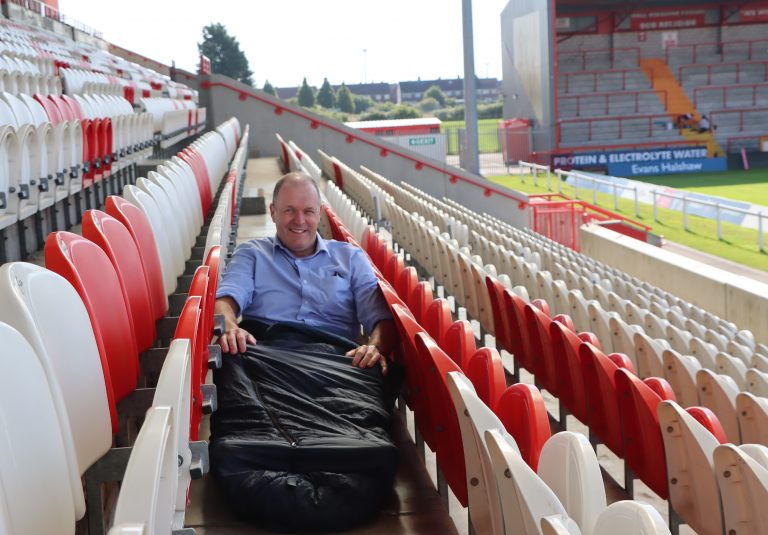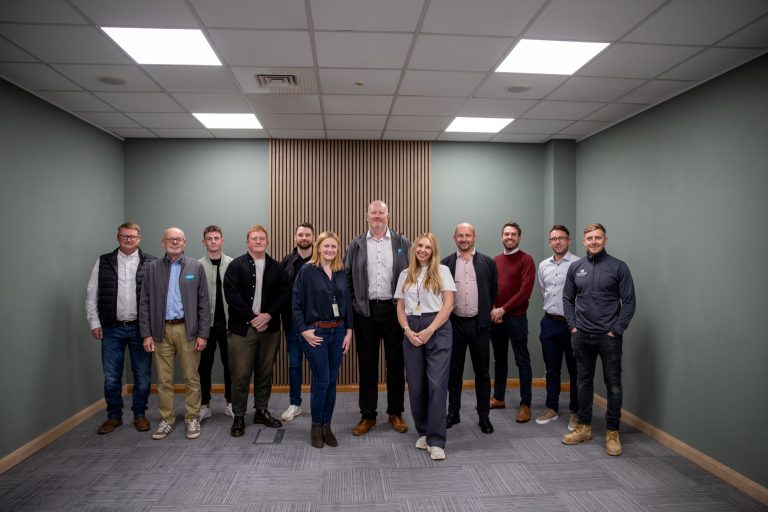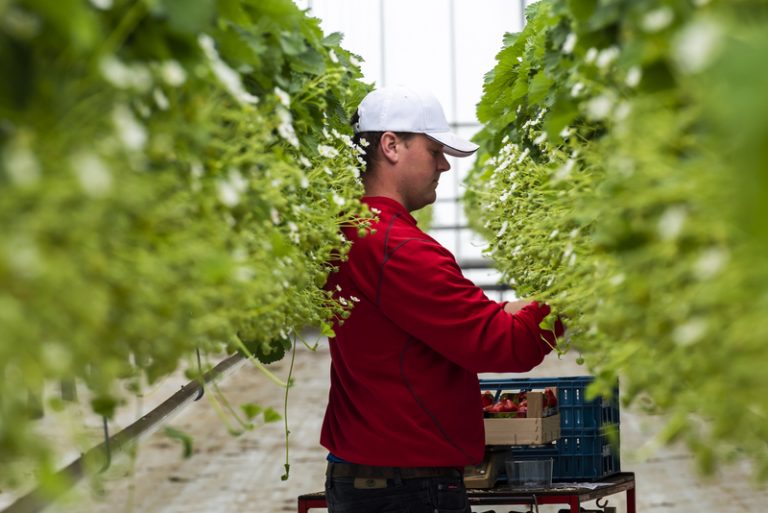The first countywide tourism guide has also been published this year, and an updated version for 2025 is currently being produced.
The first destination marketing campaign spanning the whole of North Yorkshire, which was called Find Your Escape and focused on the county’s gardens and countryside, was staged from the spring until October this year. The campaign saw more than 2.2 million social media impressions, and advertising in London Kings Cross, Newcastle Railway Station and Leeds city centre is estimated to have been seen by four million people. Promotional campaigns planned for next year include a bid to highlight the Visit North Yorkshire brand to coincide with the launch of its new website. The campaign will be delivered by an award-winning agency, SomeOne, which has previously worked with clients such as the Natural History Museum in London and the Eden Project in Cornwall. The founder of SomeOne, Gary Holt, who is from and lives near Thirsk in North Yorkshire, spoke at the Visit North Yorkshire launch when he outlined the campaign and how a more coordinated approach to a tourism brand across the county will benefit the industry. Another key campaign for 2025 will focus on North Yorkshire’s connections to television and film locations, which is among the key focuses of the new destination management plan. North Yorkshire is home to Herriot Country linked to Alf Wight’s novels and the television series, All Creatures Great and Small, Fountains Abbey was used as a location for the Netflix series, The Witcher, and the North Yorkshire Moors Railway has featured in the Harry Potter films. The new campaign, called Starring North Yorkshire, will complement Visit England’s own international marketing drive, Starring Great Britain.Charities to roll out the cardboard for big business sleep out challenge
Henry Boot Construction and partners support relocation of Sheffield wellbeing charity
Organisation launches to boost tourism in North Yorkshire
Government announces plans for 45,000 seasonal worker visas
“This package of measures will also support farmers by protecting our poultry producers from the impact of avian flu outbreaks and ensuring fairness in the sheep supply chain.”
As well as confirming visa numbers for 2025, Defra has also published the 2023 Seasonal Worker’s Survey report. This is an important part of Defra’s commitment to monitoring the welfare of the seasonal migrant workers who help bring home the horticulture harvest each year. Conducted in early 2024, the survey shows that the vast majority of respondents (91.0%) reported a positive experience from their time in the UK and 95% expressed a desire to return. The government is working with industry to improve these numbers further through its farm compliance checks to ensure sponsors are adhering to their duties and undertaking welfare checks on workers, and working with international partners to ensure workers know what work to expect before they arrive and can avoid unnecessary costs and fees. Measures announced on egg and poultry labelling will help farmers to deal with the impact of future avian influenza outbreaks. Currently, when mandatory housing measures are introduced to protect birds from the spread of disease, eggs from free-range birds can only continue to be labelled as ‘free-range’ for 16 weeks after the housing order has come into effect – leading to significant costs to industry. The changes will mean that free-range eggs can continue to be labelled as such throughout mandatory housing measures. This will be brought in through legislation due to be laid on 4 November, and is expected to take effect in January 2025, ensuring a level playing field for UK free-range egg producers against producers in the EU. A consultation on introducing similar measures for the labelling of free-range poultry is also being launched – proposing the removal of the current restrictions which mean that free range poultry can only be labelled as such for 12 weeks after the introduction of housing measures, and the removal of the need for optional indicator certificates to accompany imported poultry meat. The government is also taking action to ensure fairness across the food supply chain to ensure producers receive a fair price for their livestock by bringing forward legislation to mandate sheep carcase classification and price reporting, bringing the sheep sector in line with the beef and pork sectors.Doncaster developer works on £15m project in West Bridgford
Humber Energy Board calls for policies to create climate for £15bn private investment
- Creating a largescale carbon transport and storage network for the region: The Humber has access to two thirds of the UK’s licenced storage capacity, making it an ideal site for a network that could store tens of millions of tonnes of carbon dioxide from the region’s industrial sites and power stations. Without this network the Government’s carbon reduction targets will be impossible to meet.
- Accelerating the development of new hydrogen markets: Hydrogen fuel switching alone could abate up to 21% of the region’s emissions each year by 2040, around 3 million tonnes of carbon dioxide, and support the ongoing viability of the Humber’s chemicals, refining and combined heat and power industries.
- Prioritising new grid connectivity: With a pipeline of 11GW of additional offshore wind capacity, the region should be prioritised for additional power grid capacity to ensure this renewable power can be transmitted to homes and businesses.
Second letting for newly constructed Leeds Valley Park
John Good Group acquires padlocks and security solutions retailer
University of Leeds food tech spinout secures £3.5m investment
MicroLub, a University of Leeds spin-out, has developed a new ingredients technology that addresses key consumer demands for lower-calorie and sustainable food options.
Fats and oils make foods texturally appealing and tastier by adding ‘lubricity’ and a ‘creamy’ mouthfeel. However, they also add calories. With obesity contributing to a projected global annual health bill of $4.3 trillion, and over half the world’s population on course to be overweight or obese within the next decade, MicroLub is addressing the need for less-calorific healthier alternatives.
MicroLub also aims to contribute to sustainability by supporting the alternative protein industry in making plant-based foods less astringent.
The spinout already has strong traction with some of the largest food and food ingredients companies and with retail sales of reduced-fat dairy and plant-based food products in Europe, the US and the UK alone worth more than $120 billion, the market opportunity for MicroLub is significant.
The company was founded by Anwesha Sarkar, Professor of Colloids and Surfaces at the University of Leeds and Director of Research and Innovation for the School of Food Science and Nutrition. Anwesha is also Project Leader of the newly created National Alternative Protein Innovation Centre where MicroLub is a partner company.
Duncan Johnson, CEO of Northern Gritstone, said: “Northern Gritstone is delighted to support MicroLub’s world-class team. Obesity is a challenge in many countries reducing the quality of life of an individual and often shortening it. MicroLub shows that innovation coming out of the University of Leeds has the potential to help solve these global challenges.”
Professor Anwesha Sarkar, Founder of MicroLub, said: “When we discovered the technology and tested lubricity, we knew it had many potential applications, which we can now explore with this investment led by Northern Gritstone.”
David Peters, CEO of MicroLub, said: “There is a huge market opportunity in food for MicroLub. We already have strong traction with ingredients giants and some of the largest food and dairy companies, who are looking for innovative ways to make their products healthier, more nutritious and more sustainable. I am very excited at the journey ahead with our customers.”
Professor Nick Plant, Deputy Vice-Chancellor: Research and Innovation at the University of Leeds, said: “This groundbreaking research is addressing a major global challenge while placing the UK at the forefront of the quest to reduce health inequalities. We are proud of our track record of transforming academic research into commercial success.”












